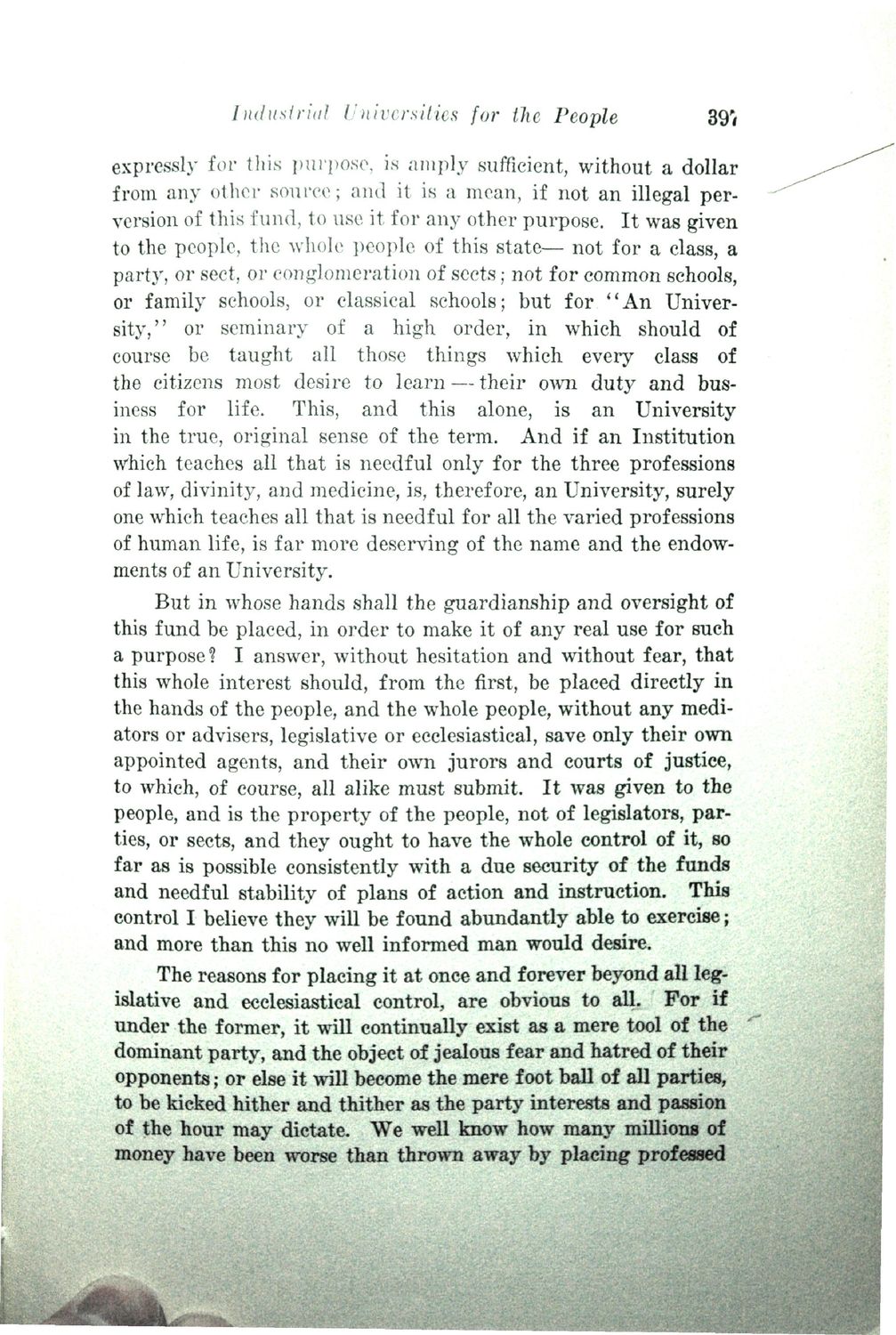| |
| |
Caption: Book - History of the University (Powell)
This is a reduced-resolution page image for fast online browsing.

EXTRACTED TEXT FROM PAGE:
Industrial Universities for the People 397 expressly for this purpose, is amply sufficient, without a dollar from any other source; and it is a mean, if not an illegal perversion of this fund, to use it for any other purpose. It was given to the people, the whole people of this state— not for a class, a party, or sect, or conglomeration of sects; not for common schools, or family schools, or classical schools; but for. " A n University," or seminary of a high order, in which should of course be taught all those things which every class of the citizens most desire to learn — their own duty and business for life. This, and this alone, is an University in the true, original sense of the term. And if an Institution which teaches all that is needful only for the three professions of law, divinity, and medicine, is, therefore, an University, surely one which teaches all that is needful for all the varied professions of human life, is far more deserving of the name and the endowments of an University. But in whose hands shall the guardianship and oversight of this fund be placed, in order to make it of any real use for such a purpose ? I answer, without hesitation and without fear, that this whole interest should, from the first, be placed directly in the hands of the people, and the whole people, without any mediators or advisers, legislative or ecclesiastical, save only their own appointed agents, and their own jurors and courts of justice, to which, of course, all alike must submit. I t was given to the people, and is the property of the people, not of legislators, parties, or sects, and they ought to have the whole control of it, so far as is possible consistently with a due security of the funds and needful stability of plans of action and instruction. This control I believe they will be found abundantly able to exercise; and more than this no well informed man would desire. The reasons for placing it at once and forever beyond all legislative and ecclesiastical control, are obvious to all^' For if under the former, it will continually exist as a mere tool of the dominant party, and the object of jealous fear and hatred of their opponents; or else it will become the mere foot ball of all parties, to be kicked hither and thither as the party interests and passion of the hour may dictate. We well know how many millions of money have been worse than thrown away by placing professed
| |